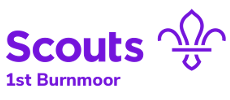To give positive guidance, the 'Young People First' Code of Conduct (also known as the yellow card) sets out a code of behaviour for all adults in Scouting.
Every adult in Scouting should have a copy of the 'Young People First' Code of Conduct. It is designed so you can keep it with you at all times during Scouting activities.
All adults in Scouts follow our Code of Conduct Safeguarding is everyone’s responsibility. If in doubt, report it.
Do remember that you are a role model at all times, inside and outside of Scouts. You must set a good example for others to follow.
Do treat everyone with dignity and respect in line with the Scout Values.
Do treat all young people equally – do not show favouritism
Do follow the adult-to-young-people ratios at all times.
Do remember that you have been placed in a position of trust – do not abuse this trust.
Do report all safeguarding concerns directly to the Safeguarding Team as soon as possible, and always within 24 hours
Do contact the Safeguarding Team if you receive details of any statutory agency (for example, the police, the Local Authority Designated Officer (LADO) or children’s services) involvement regarding a member.
Do remember that someone may misinterpret your actions.
Do respect children’s and young people’s right to personal privacy.
Do encourage an open and transparent culture, where people challenge or report behaviour that is not in line with this code.
Do make everyone aware of our safeguarding arrangements. Share our Yellow Card with volunteers, parents and guardians, and display it where meetings take place.
Do create an environment where children and young people feel safe and able to voice their concerns.
Do have separate sleeping accommodation for young people and adults, as well as young leaders working with a younger section.
Do plan activities that involve more than one other person being present. If that’s not possible, make sure other people can see and hear what’s going on.
Do not plan to be alone with a child or young person in Scouts, either online or in person.
Do not drink alcohol when you are directly responsible for children and young people in Scouts, and never allow under 18s to drink alcohol on Scout activities
Do not trivialise concerns or abuse.
Do not let concerns or abuse go unreported. Contact the Safeguarding Team, especially if you feel your concern has not been taken seriously.
Do not join in physical contact games with children and young people.
Do not overstep the boundaries with children and young people by being involved in friendships or personal relationships with them.
Do not allow activities that encourage bullying behaviour, including initiation ceremonies, dares or forfeits.
Do not use inappropriate, suggestive or threatening language, whether verbal, written or online.
Do not rely on your reputation or position to protect you.
Do not get involved with a safeguarding concern if you have a personal friendship or family connection with those involved. Step back and tell the Safeguarding Team about the connection.

